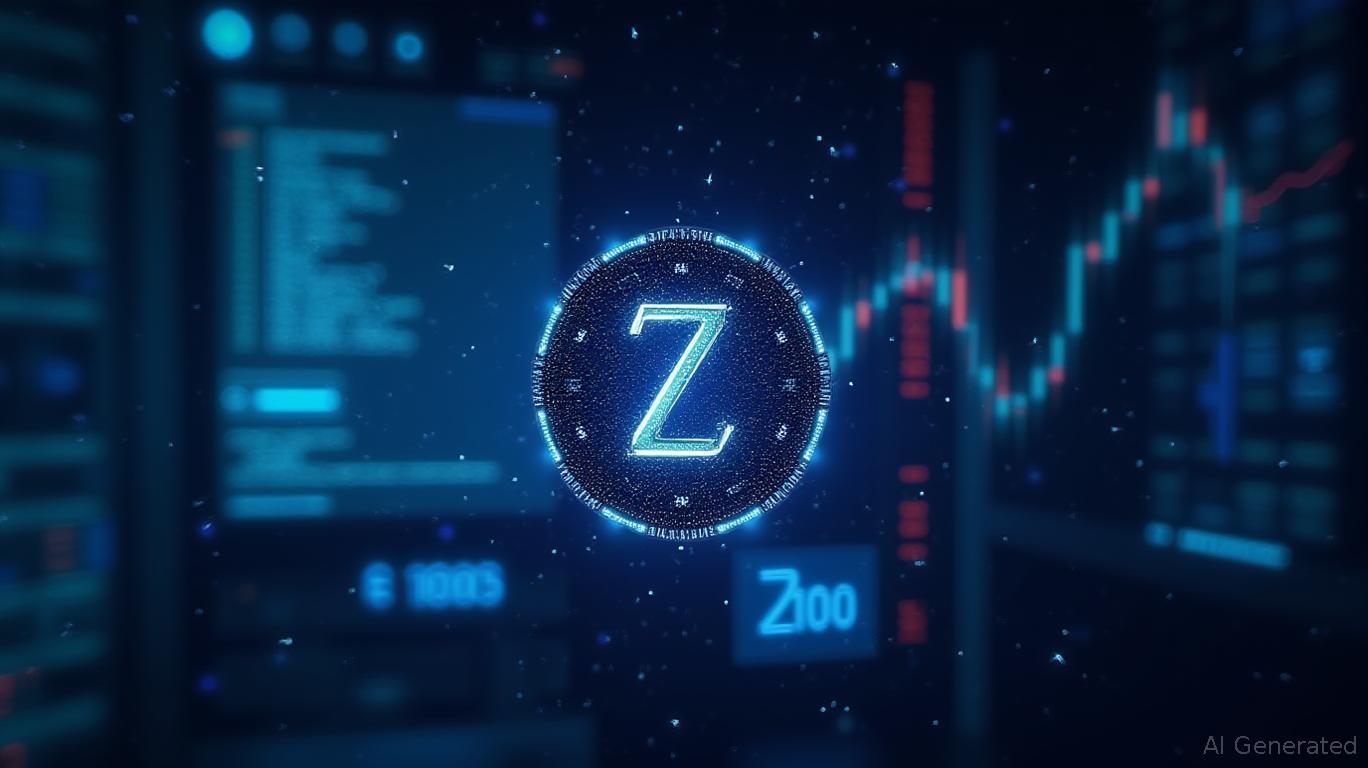AI Gold Rush Creates $320 Billion Bubble as Federal Reserve Measures Lose Effectiveness
- Fed's rate hikes fail to curb tech giants' $320B+ AI spending surge, defying traditional monetary policy effectiveness. - Amazon, Microsoft, Alphabet, and Meta spent $97B+ on AI infrastructure Q3 2024, with Microsoft planning $80B 2025 data center investments. - Investor skepticism grows as Meta's 12% stock plunge contrasts Amazon's 11% rise, highlighting divergent monetization strategies and unproven AI ROI. - Private credit fuels AI expansion while Fed struggles to influence spending, raising fears of
The Federal Reserve’s usual monetary policy levers are proving less capable of reining in the surge of AI-driven expenditures by major technology companies, a pattern that supports recent remarks by Fed Chair Jerome Powell. Even as interest rates have climbed in an effort to temper inflation, firms such as
The magnitude of these investments is remarkable. In the latest quarter, Amazon, Alphabet, Meta, and Microsoft together allocated nearly $97 billion to capital projects, not counting finance leases, which would push the total past $100 billion. Looking ahead to 2025, Microsoft alone expects to spend $80 billion on AI-powered data centers, while Meta has increased its capital expenditure forecast to between $70 billion and $72 billion, with further growth anticipated in 2026. Meanwhile,

Yet, investor confidence is showing signs of strain. Meta’s stock tumbled 11.8% in late October after the company revealed it would ramp up AI spending more than expected, while Microsoft’s shares slipped 3.5% after reporting a record $34.9 billion in capital outlays, according to Yahoo Finance. These declines reflect fears that such heavy investments may not deliver immediate revenue, reminiscent of Meta’s costly foray into the metaverse. OpenAI’s CEO Sam Altman has cautioned that the current excitement around AI is “overexcited,” warning that the sector could face a correction similar to the dot-com bust of the 1990s.
Amazon, on the other hand, stands apart;
The race to dominate AI has also revealed deeper changes in financial markets. Much of the funding for this infrastructure expansion now comes from private credit and long-term bonds, with data center investments increasingly backed by private capital. Torsten Slok of Apollo Global Management pointed out that outside of AI, corporate capital spending has largely stalled, emphasizing the sector’s disproportionate impact on GDP growth, as detailed in
As the conversation about AI’s long-term prospects heats up, the Federal Reserve’s ability to shape corporate strategies seems increasingly limited. Powell’s observation that AI investments are “not sensitive to interest rates” is being confirmed as companies focus on long-term strategic advantage rather than short-term costs. While some warn that the sector is inflating a bubble, others believe it is laying the groundwork for lasting innovation. The next few months will reveal whether these massive investments lead to transformative progress or become another lesson in the dangers of overinvestment.
Disclaimer: The content of this article solely reflects the author's opinion and does not represent the platform in any capacity. This article is not intended to serve as a reference for making investment decisions.
You may also like
Open-Source AI Movement Faces Resistance from Profit-Oriented Tech Corporations
- Vitalik Buterin advocates open-source autonomous driving to boost innovation and safety, challenging profit-driven tech giants. - AI stocks like C3.ai (-2.96%) underperform as Microsoft and NVIDIA gain traction through proprietary AI hardware and OpenAI partnerships. - OpenAI's potential IPO and $11.6B 2025 revenue projections highlight tensions between non-profit models and commercialization, amid copyright lawsuits. - Market volatility (84% call/79% put implied volatility) reflects uncertainty over AI'

ZEC Climbs Close to $400 While Technical Signals Suggest a Potential Pullback
- Zcash (ZEC) surged near $400, outperforming Bitcoin and Ethereum, but technical indicators signal potential correction due to bearish divergences and weakening momentum. - On-chain data highlights rising retail activity and distribution phase warnings, suggesting short-term profit-taking and waning institutional interest. - ECC’s Q4 2025 privacy upgrades aim to strengthen ZEC’s value proposition, though mixed sentiment persists amid macroeconomic headwinds and Fed rate impacts. - Analysts warn of 10%–12%

Ethereum Updates Today: Major Institutions Support Meme Tokens Amid Crypto’s Security-Focused Revival
- Institutional investors increasingly target meme coins and presales like BlockchainFX, MoonBull, and Shiba Inu amid crypto market shifts. - Shiba Inu's Shibarium network undergoes security upgrades after a $2.8M breach, aiming to decentralize infrastructure and restore investor trust. - Ethereum shows bullish technical patterns with $668M ETF inflows, while ZKsync Atlas upgrades promise enhanced scalability and institutional appeal. - T. Rowe Price's Shiba Inu ETF proposal highlights growing institutiona

SEI Consolidates Between $0.1889 and $0.2013, Showing Signs of Short-Term Recovery
